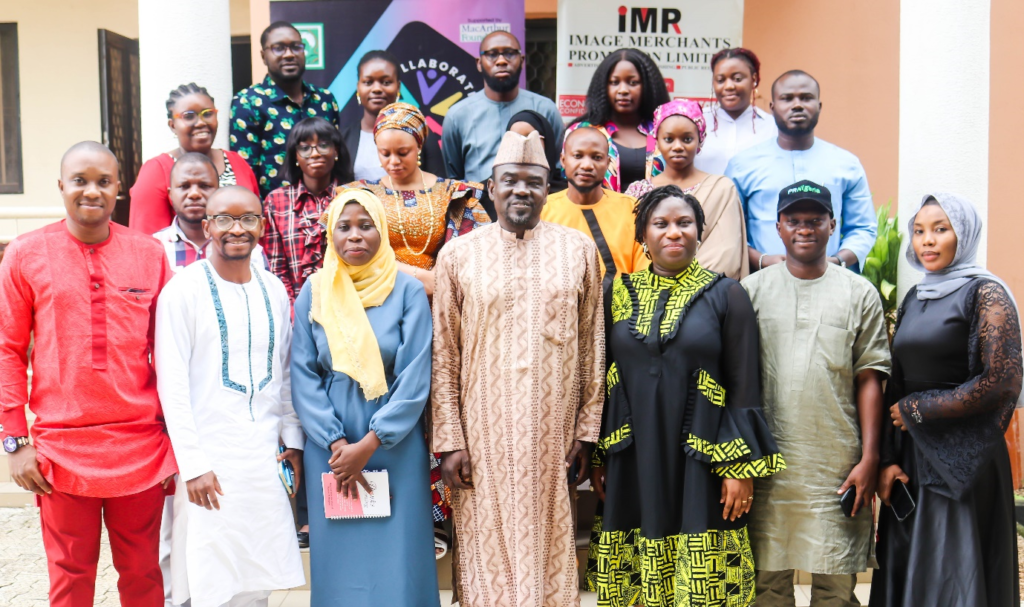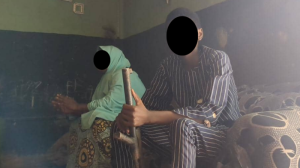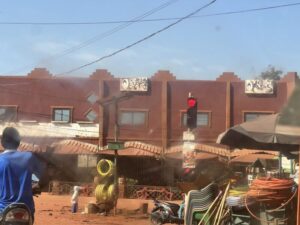Yushau Shuaib, Editor-in-Chief of PR Nigeria, believes the news media can achieve more as a change agent with collaboration with security agencies, Ministries, Departments and Agencies (MDAs), Civil Society Organisations (CSOs), and other media organisations. Addressing the Wole Soyinka Centre for Investigative Journalism (WSCIJ) team during a visit to PR Nigeria on Wednesday, 2 August 2023, to evaluate the impacts, challenges, and progress report of their activities under the Collaborative Media Engagement for Development, Inclusivity, and Accountability (CMEDIA), he said PR Nigeria achieved because it engaged security agencies, MDAs, other media organisations, journalists and other stakeholders on insecurity in the NorthEast of Nigeria.
He praised the CMEDIA project for its contributions to service delivery at the subnational level of governance in Nigeria and improved collaborations among the 26 media partners on the project. While briefing the WSCIJ team led by Motunrayo Alaka, ED/CEO, WSCIJ, Shuaib said PR Nigeria established a fact-checking department and did more gender-inclusive reports courtesy of the CMEDIA project.
CMEDIA is a multi-level intervention that supports media independence, improved transparency, accountability, and good governance in state and local governments with more public awareness on the need for accountability and amplified marginalised voices. Shuaib identified threats to life, loss of commercial patronage, and lawsuits against journalists as some of the challenges faced by PR Nigeria and its investigative reporters holding the government accountable at the local and state levels of government.
Salisu Muhammad, a reporter for PRNigeria, detailed a near-death experience while on assignment in Chonoko Town, Danko/Wasagu Local Government Area of Kebbi State, alongside another colleague- Ya’u Mukhtar. He said some local government officials perceived their efforts to report the impacts of banditry on the town as a threat. The multi-media journalist said the initial enthusiasm and cooperation of the Emir of Chonoko and survivors took a sharp turn when the officials discovered their mission. When their fixer instructed them to escape for their safety, they abandoned some equipment and fled.
Abdusallam Mahmoud, who authored a story on the living conditions of Internally Displaced Persons (IDPs) camps housing survivors, wives, and children of bandits, revealed that he received threats from influential figures within the Nigerian military establishment who felt betrayed and threatened by the reports on the IDP camps operated by the Nigeria Military, United Nations, and Borno State Government.
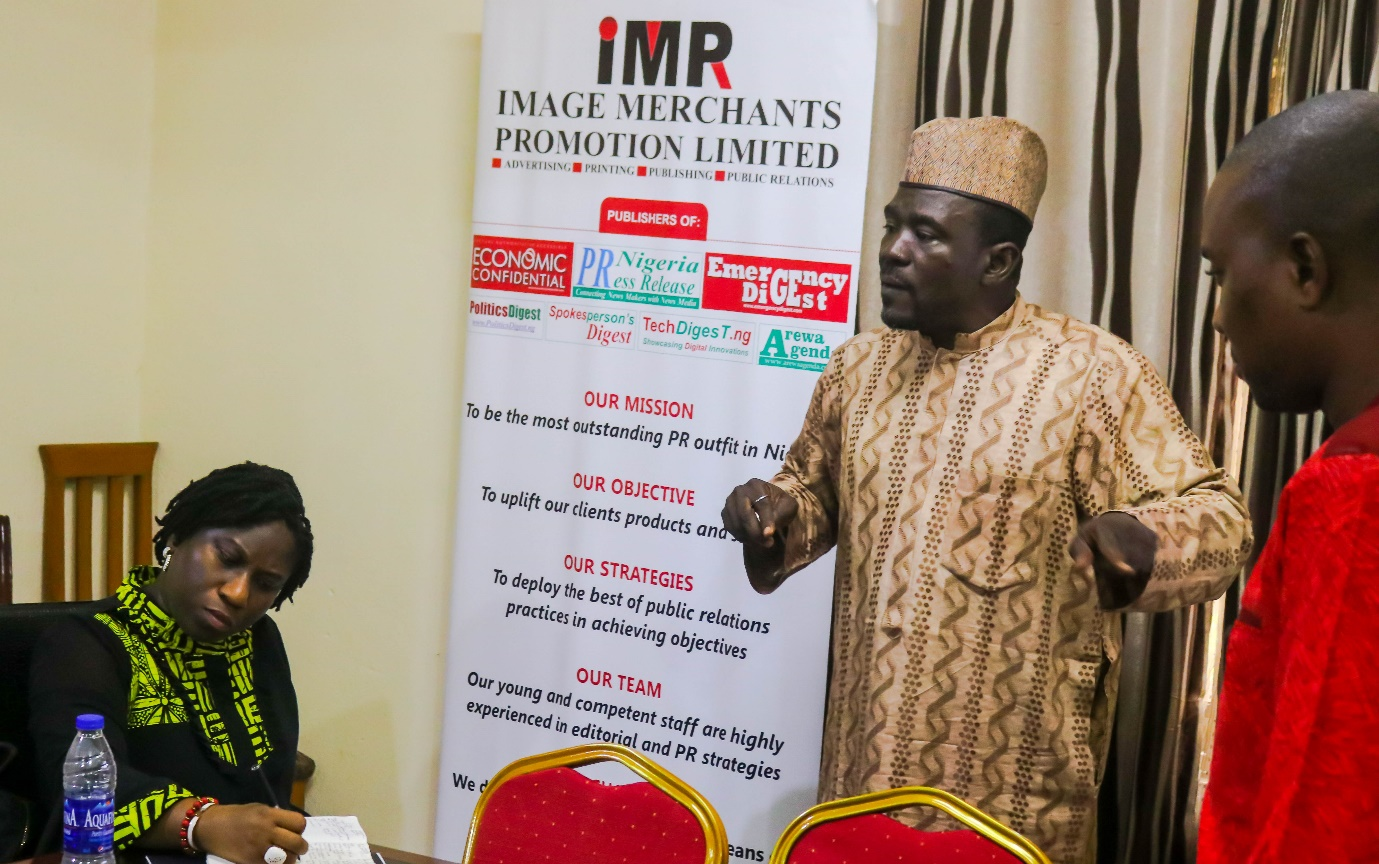
In her response, Alaka acknowledged the Abuja-based organisation’s impressive work under the project. She applauded the round table initiative where PR Nigeria engaged relevant stakeholders and how it amplified published stories. She lauded PR Nigeria’s efforts to build hope in Nigerians through published works on government agencies, officials, and citizens, in addition to holding authorities accountable. Addressing some challenges raised by Shuaib, the WSCIJ Executive Director charged journalists and media organisations to recognise the need for adequate security and risk management while on duty because no story is worth a journalist’s life.
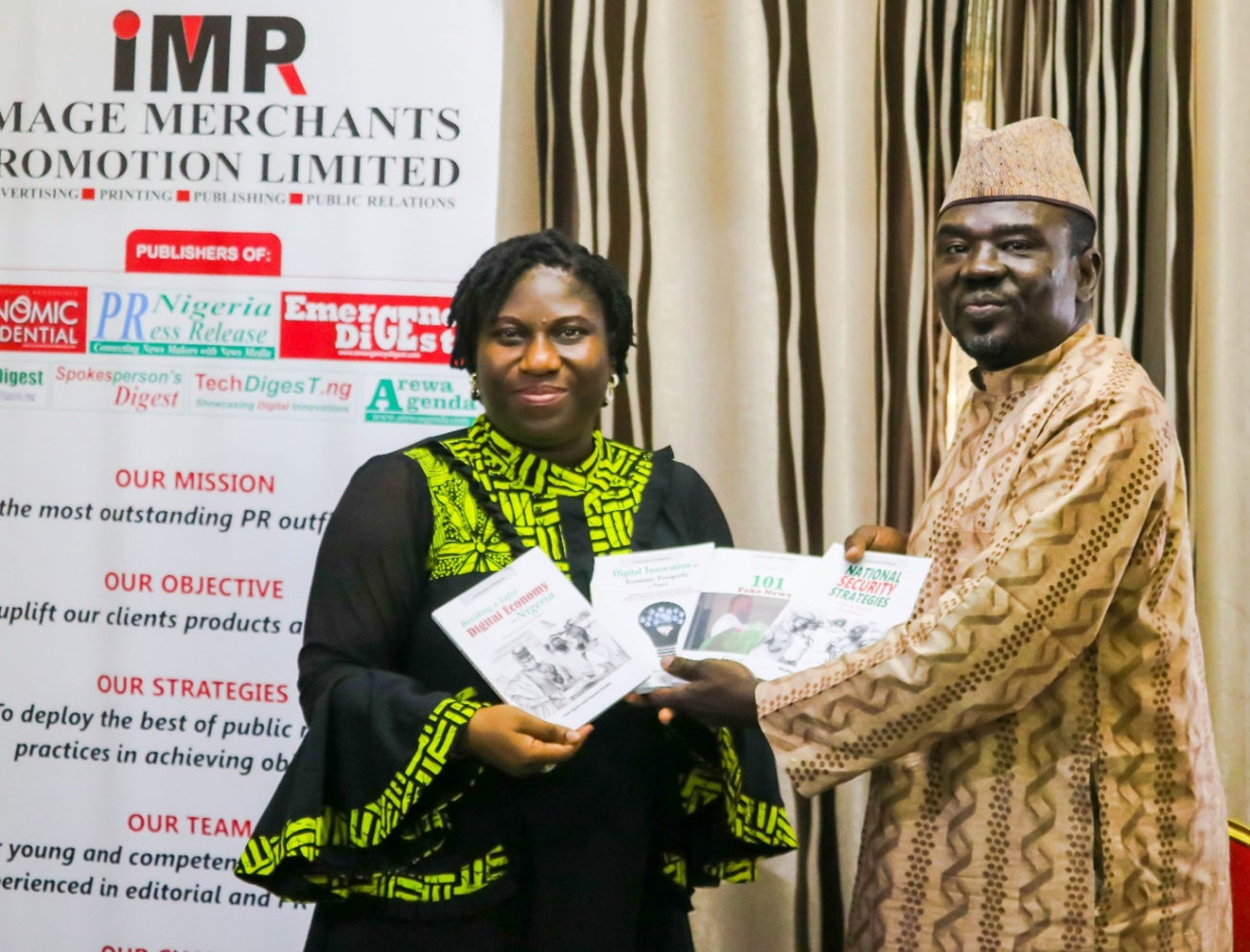
Alaka enjoined PR Nigeria and the media to do more stories to help the vulnerable in the society. She hinted at a possible collaboration with PR Nigeria on the training and mentorship of more mass communication students across universities in the North-West, North-East, and North-Central regions of Nigeria and a meeting between security agencies and news media leaders to foster mutual respect and improve the safety of journalists in the course of their duty. The WSCIJ team included Emem Nssien, Finance Officer, CMEDIA project; Ehikioya Ataman, Monitoring and Evaluation Intern and Afolabi Oni, Communications Officer.

